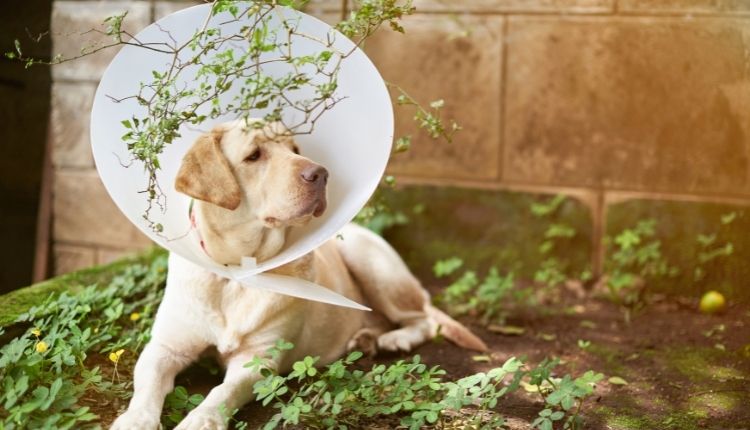Are Dogs Allergic To Grapefruit? The Truth and Myths About this Popular Food!
People often ask are dogs allergic to Grapefruit. But the answer is not so simple. It depends on a number of factors such as breed, age, and the person’s reaction to different types of food.

But if you still want to know whether your pet is allergic to Grapefruit, this article will guide you through the scientific process and help you understand the causes of your pet’s allergies better.
What is an allergy?

Allergies are a type of hypersensitivity in which the body’s immune system reacts abnormally to certain substances, such as pollen, dust mites, or foods. The reaction can range from mild symptoms such as sneezing and watery eyes to life-threatening reactions like anaphylaxis (a severe allergic response that can cause dizziness, weakness, tachycardia [a fast heart rate], and changes in blood pressure). Symptoms can also occur when the allergen enters the body through contact with skin, hair, or saliva.
Can Dogs Eat Grapefruit?
There is some evidence that Grapefruit might be harmful to dogs if ingested in large quantities. However, there is no conclusive proof linking Grapefruit and allergic reactions in canines.

Most experts agree that Grapefruit shouldn’t be given as a regular diet to dogs, especially if they are breeds prone to allergies such as Golden Retrievers or Bulldogs. Some pet owners choose to give their dog grapes occasionally when they know that the canine is allergic to other fruits. Feeding grapes exclusively as a treat can also be problematic, as they may become excited or stressed in response and further exacerbate an existing allergy.
What Are the Different Types of Grapefruit?
Two main types of Grapefruit are found on store shelves: common oranges and tangerines. The latter has a more acidic taste and contains less sugar than the former type. While both grapes can give dogs allergies, it’s more likely that a Golden Retriever, for example, would be allergic to oranges because of the citrus in their diet.

In order to determine whether your pet is allergic to Grapefruit specifically, identify which type of Grapefruit they are reacting to and if it’s common in their breed’s diet. A veterinarian can also perform a skin test or an Allerpet food challenge as part of diagnosing allergies.
Where does the grapefruit toxicity come from?
Some research suggests that Grapefruit might be toxic to dogs like the herbs we discussed in another post. if ingested in high enough quantities. While the jury is still out on whether this toxicity is actually a cause of allergies, it’s always better to err on the side of caution.
Recognizing that Grapefruit is a potential allergen in your pup’s diet will help you make informed decisions about food options and feedings. What are the best ways to feed a grapefruit-allergic dog if they must eat them?

If your pup is allergic to Grapefruit, it’s important that you choose feeding options that are gentle on their stomach. Some great choices include grapesicles (made by freezing grapes and then thawing them out), fresh fruit slices with no added sugar, or herbal teas such as ginger tea made with one teaspoon of grated fresh ginger per cup of water.
Be sure to give your dog plenty of fresh air and exercise when they’re around Grapefruit, as overexposure can increase the likelihood that they’ll develop an allergic reaction. Avoid feeding grapes to dogs who are not otherwise healthy, as these high-sugar foods may lead to weight gain and other health problems in a sensitive pup.
Diagnosis of Grapefruit Poisoning in Dogs:
1. If your dog appears to be experiencing adverse effects from ingestion of Grapefruit, such as vomiting, diarrhea, or increased thirst and urination rates, seek veterinary attention.

2. A serum CBC (blood count), chemistry panel including liver function test, and prothrombin time (PT) may be performed in dogs with suspected poisoning by Citrus fruits due to the sensitivity of these tests for certain toxins present in these types of fruits. 3. If a diagnosis is made of grapefruit poisoning, treatment may include activated charcoal therapy to bind and remove toxins from the dogs’ gastrointestinal tract and fluids administered IV or through an oral drip in order to combat dehydration.
Grapefruit Poisoning Treatment in Dogs:
1. If your dog has ingested Grapefruit and signs of poisoning are present, begin supportive care by providing fluids and inducing vomiting if necessary.
2. Administer activated charcoal to bind and remove toxins from the dogs’ gastrointestinal tract (if available).
3. If dehydration is an issue, administer intravenous or oral fluids until signs of hydration improve.
Grapefruit Poisoning Recovery in Dogs:
1. Recovery from grapefruit poisoning in dogs typically takes a few days, during which time your dog may experience vomiting, diarrhea, and an increased thirst and urination rate.

2. Once your dog has recovered from the effects of grapefruit poisoning, care should be taken to monitor for any potential long-term health consequences stemming from the toxin exposure. If you believe that your dog has ingested Grapefruit and is experiencing signs of poisoning, seek veterinary attention as soon as possible. There is a good chance that treatment will be required to remove toxins from the dogs’ gastrointestinal tract, and fluids may be necessary to combat dehydration.
Conclusion:
Above discussion Are dogs allergic to Grapefruit which makes you understand properly If you have a dog that has ingested Grapefruit and is experiencing signs of poisoning, be sure to provide supportive care, including fluids and inducing vomiting as necessary.
Activate charcoal therapy may also be administered to bind and remove toxins from the dog’s gastrointestinal tract.
If dehydration is an issue, intravenous or oral fluids may be necessary until signs of hydration improve. Recovery from grapefruit poisoning in dogs typically takes several days, during which time your pet may experience vomiting, diarrhea, and a heightened thirst and urination rate. Once the dog has recovered from the poisoning effects, you should take care to monitor for any long-term health consequences that may result from exposure to grapefruit toxin.





